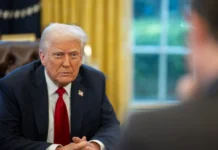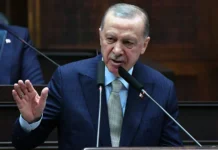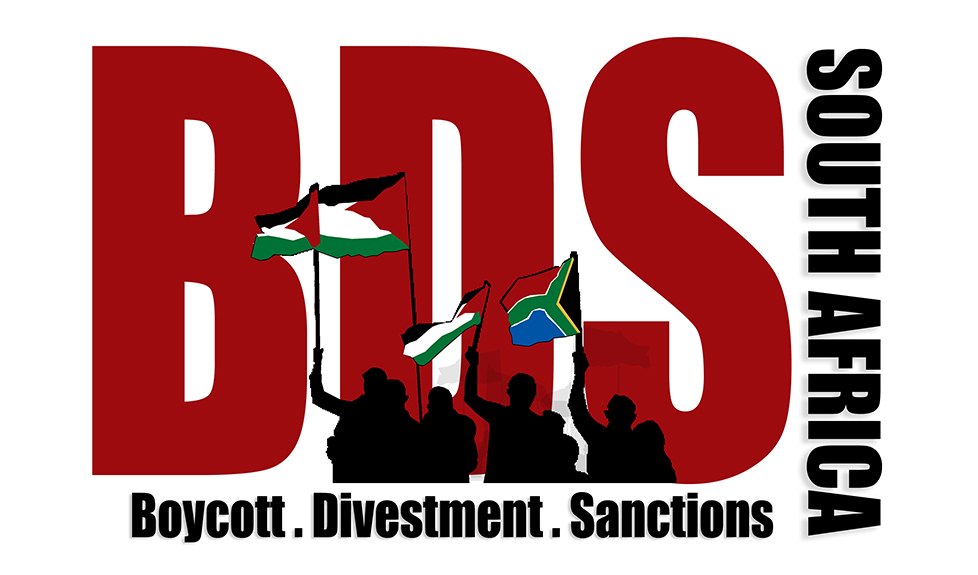“Not as much as we had hoped, but we have advanced nonetheless!” With these words, the “” of South Africa last week greeted the news that the University of Cape Town’s (UCT) top decision-making body had voted, for the moment at least, against an academic boycott of Israel.
South Africa’s Jewish community, battling an environment where the most extreme anti-Zionist tropes have become normalized, understandably welcomed this development. But was it really a setback for the anti-Israel BDS movement in a country whose leaders and influencers normally sing its tune?
As sinister-sounding as this statement is, with its accent of menace around the word “Zionism,” it’s also a reasonable summation of the status of Israel (and to a great extent, “Zionism” and the Jewish community as well) in South Africa these days. Those readers who wonder what British government policy towards Israel would look like a year or two into a government led by Labour Party leader Jeremy Corbyn would do well to consider the South African example—because in that country, individuals who share Corbyn’s unflinching anti-Zionist views, with its attendant contempt for the local Jewish community, are running universities, government departments, powerful labor unions and politically connected NGOs.
Whereas in the United States, the BDS movement’s incitement is largely confined to the university campus—and it is politically and legally frozen out of federal and state level decision-making—in South Africa the reverse is true. There, the influence of the BDS movement on university campuses is actually a reflection of government policy.
Two weeks ago, South African President Cyril Ramaphosa regrettably confirmed that his country would be downgrading diplomatic relations with Israel. The initial decision to downgrade was made at a December 2017 conference of the ruling African National Congress (ANC), which voted to reduce the South African Embassy in Tel Aviv to a liaison office, so as to “give our practical expression of support to the oppressed people of Palestine.” Senior representatives of Hamas were on hand to witness the moment.
If this is the atmosphere within South Africa’s government, the prospect of one of the country’s university’s boycotting Israel seems like a comparatively minor problem, even if, with UCT, we are talking about one of the flagship higher-education institutions on the African continent. The underlying question is why, exactly, South Africa has adopted this seemingly implacable hostility towards Israel, and whether it can be sustained.
The conventional (and largely correct) answer as to why goes back to the struggle in the late 20th century against apartheid—the legal system of racial segregation through which South Africa’s small white minority denied that nation’s vast black majority their most basic human and civil rights. Like most of the regional struggles of that era, the ANC’s battle against apartheid was incorporated into the wider Cold War in Africa, with the Soviet Union presenting itself as the most stalwart friend of the anti-apartheid cause. With the USSR came its allies, especially the Palestine Liberation Organization; by the 1970s, the supposed correspondence between “apartheid” and “Zionism”—a common ideology of racism and a common strategy of colonialism—was firmly established in the PLO’s propaganda arsenal.
Yet it isn’t nostalgia alone that propels current South African loathing of Israel. Enmity towards the Jewish state is a pillar of the country’s foreign policy, but it isn’t the only one. Others include an unwavering solidarity with dictators. South Africa was famously an enabler of the totalitarian nightmare imposed by Robert Mugabe on neighboring Zimbabwe; that principle has survived in the ANC government’s vocal backing for the illegitimate regime of Nicolás Maduro in Venezuela. In supporting Maduro, South Africa finds itself in the company of Russia, China, Iran, Turkey and all those other notorious human-rights abusers who scream about national sovereignty whenever their offenses are called out.
Yet another foreign-policy pillar includes the pursuit of ideological goals that clearly run counter to the national interest. If Jewish politicians or communal leaders were doing this sort of thing, they’d be accused of “dual loyalty,” but in South Africa’s progressive circles, denying your poorer compatriots economic and educational opportunities is a blessed act when it is presented as part of the war against “Zionism.” Hence the corporate fight over the last two months over the proposed takeover of Clover—South Africa’s biggest dairy company—by an Israeli-led consortium. Were the bid to receive approval, thousands of jobs would be created in South Africa—where a full 28 percent of the workforce is unemployed— as well as in neighboring countries that are part of Clover’s regional distribution network. But that is less important to South Africa’s BDS lobby than an ideological victory over “Zionism,” and so the talks, and thus the jobs, are on hold.
Given that South Africa’s leaders have spent the past decade agitating against Israel, it’s unlikely that anything less than a change of government would reverse this trend. The ANC—symbolized above all by the late Nelson Mandela—remains a hegemonic force in South Africa, but its popularity is not as solid as was once the case. In a world that has been convulsed with political shocks over the past five years, the ANC, a party that has been in power since the 1990s, should looking over its shoulder. Sooner or later, people become tired of hearing the same slogans.


























